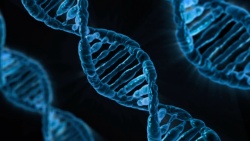- BY WebDev
- POSTED IN Addiction Recovery, Recovery Resources
- WITH 0 COMMENTS
- PERMALINK
- STANDARD POST TYPE
Is Alcoholism Genetic? Understanding the DNA behind Alcoholism

Genetic vs. Environment Influences to Alcoholism
Genetics is just half the equation when it comes to alcohol dependency. Behavioral traits dictated by genetics must still interact with environmental factors. Most genetically predisposed people have experienced environmental triggers before they turn to alcohol.
For example: People with genetic risk factors who have experienced childhood trauma are much more likely to turn to alcohol. People who have the same genetic risk factors but grew up in a loving home are less likely to become dependent on alcohol.
Environmental risk factors for alcohol dependency include:
- Accessibility to Alcohol
- Stress
- Home Environment
- Social Factors: safe community, stable home, educational opportunities, support from parental figures.
Are you at Genetic Risk of becoming an Alcoholic?
If there is a history of alcoholism in your family, you have a higher likelihood of developing AUD (alcohol use dependency). The more close relatives who suffer from alcoholism in your family, the higher your risk. However, do not let your family history make you feel hopeless as if you’re bound to the same fate. Awareness allows you to protect yourself from alcoholism and the damages it will cause to your life and health.
- Keep a strong support system and maintain close ties with your sober family members
- Cultivate healthy friendships
- Seek counseling when and if necessary
- Learn to manage stress
- Be aware of the early signs of alcohol addiction
Common Signs of Alcohol Use Disorder
If you or a loved one is at a high risk for alcohol addiction, it is imperative to know the early warning signs of dependency. Acceptance House Sober Living provides 11 criteria to diagnose alcohol abuse disorder:
- Consuming alcohol over a long period of time or in larger amounts than intended
- Inability to cut down or control consumption
- Strong craving for alcohol
- Spending a lot of effort to buy, consume and recover from the after-effects of alcohol
- Inability to fulfill obligations & responsibilities (work/home/school) due to alcohol use
- Social and interpersonal conflicts arising from alcohol use and/or behavioral effects
- Continued consumption even in dangerous situations like driving
- Giving up hobbies or other important social and work-related activities because of alcohol
- Continued consumption even when it is negatively affecting your physical or mental health
- Developing a high tolerance for alcohol. Feeling the need to increase the amount of alcohol to achieve your desired effect
- Experiencing withdrawal when attempting to stop using alcohol
If you’re suffering from alcohol addiction, you can rise above the disease. Your genes may predispose you do it, but you don’t have to let it define you. Call Acceptance House Sober Living and we can recommend a treatment center to help you; call us at 856-465-7310.

